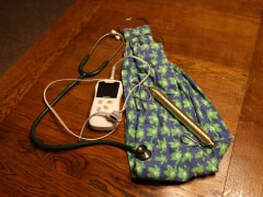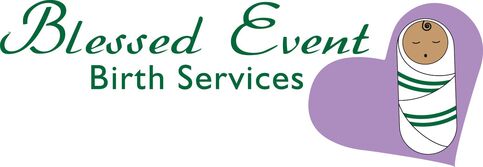
Stethoscope and blood pressure cuff: I also take Mom's blood pressure at each postpartum. Blood pressure numbers can tell me how well the body is handling birth related blood loss and helps me monitor for postpartum preeclampsia.
Pulse-oximeter: I carry a pulse-oximeter to use on baby to check for critical congenital heart dieases if parents want the check completed.
Newborn heel lancet and Kansas newborn metabolic screening collection form: I use these to collect five blood drops for the state to complete the metabolic disease screening. Parents can decide if they want ths screening completed.
My hands: I like to palpate the uterus at the first 2 or three postpartums to check how quickly it is going back to pre-pregnancy size.
Questions: I ask lots of questions. I'll ask about nursing, Mom's sleep and appetite, how everyone is adapting to baby and many more questions. Questions help me assess how things are going and give me the opportunity to help everyone navigate any issues that may come up.
My most important tools: I feel my most important tools are asking questions and listening well and trusting parental intuition.
Postpartum is wonderful and exhausting at the same time. Rest, good support and evidence based information can all contribute to a wonderful postpartum period. My goal in the postpartum period is to work together with parents and baby to help them have the best postpartum time they possibly can have.

 RSS Feed
RSS Feed